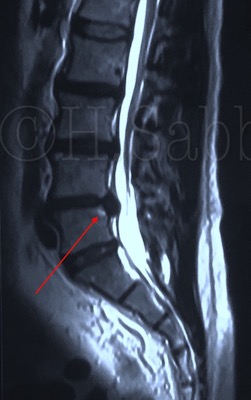L4-5 Posterior Central Left Outer Annular Herniation – Acute Moderate L4-5 Radiculitis – Complicated by L4-5 Posterior Compartment Instability (Case Report – 32)
Abstract
It is well agreed that the initial treatment for spinal bio-mechanical dysfunctions, including stable discopathies with limited neurological presentations should be conservative at first. Keeping in mind that close follow-up and regular re-evaluations are mandatory in the course of the treatment protocol.
This particular case review involves a 46 years old white male who had presented to a clinician (specializing in a different health discipline) with a chief compliant of subacute mild – moderate left L4-5 radiculitis extending to the lower back and the left gluteal region, of two weeks duration.
The initial MRI study obtained just prior to the initiation of treatment indicated L4-5 posterior lateral left herniation with limited extension into the sub-articular space, corresponding to the initial clinical and neurological presentation.
Following the initial examination, patient was treated for total of ten sessions, which had included the use of physical modalities, with the Automated Supine Decompression unit as the main protocol. No form of manipulation including osteopathic or long lever type was applied in this case.
Due to inadequate patient response during the initial treatment and further applied procedures, patient was re-evaluated 9 weeks following initiation of the chief complaint with regression of his symptoms, confirmed on the follow up MRI study.
The purpose of this case review presentation is not to evaluate any particular treatment modality such as the Automated Supine Decompression system which was used in this particular case, but to review the clinical decision making process, through out the treatment and the follow up procedure.
More importantly, pointing out the importance of abiding by the Clinical Practice Guidelines set forth, in order to prevent possible complications such as seen in this particular case, and similar cases which may also lead to unfavorable treatment results.
